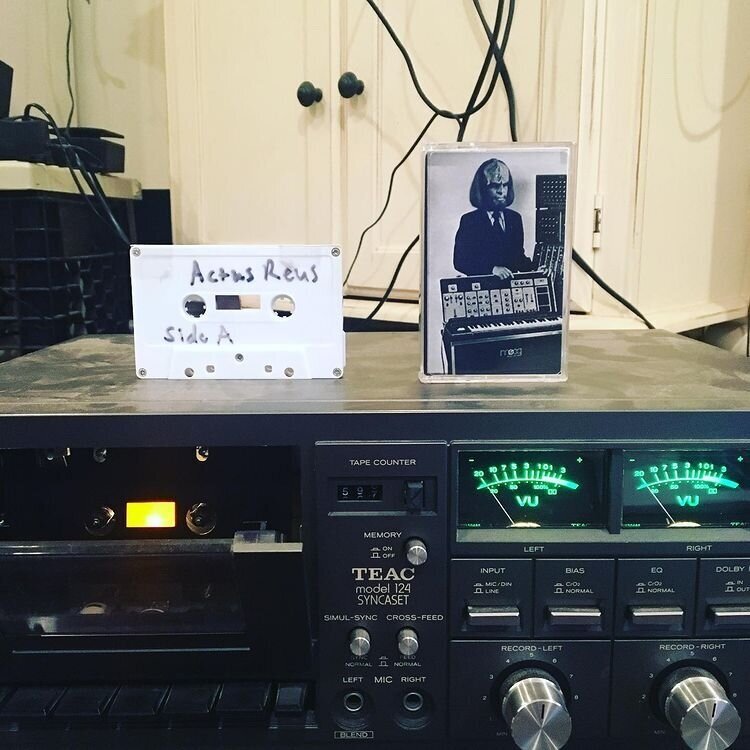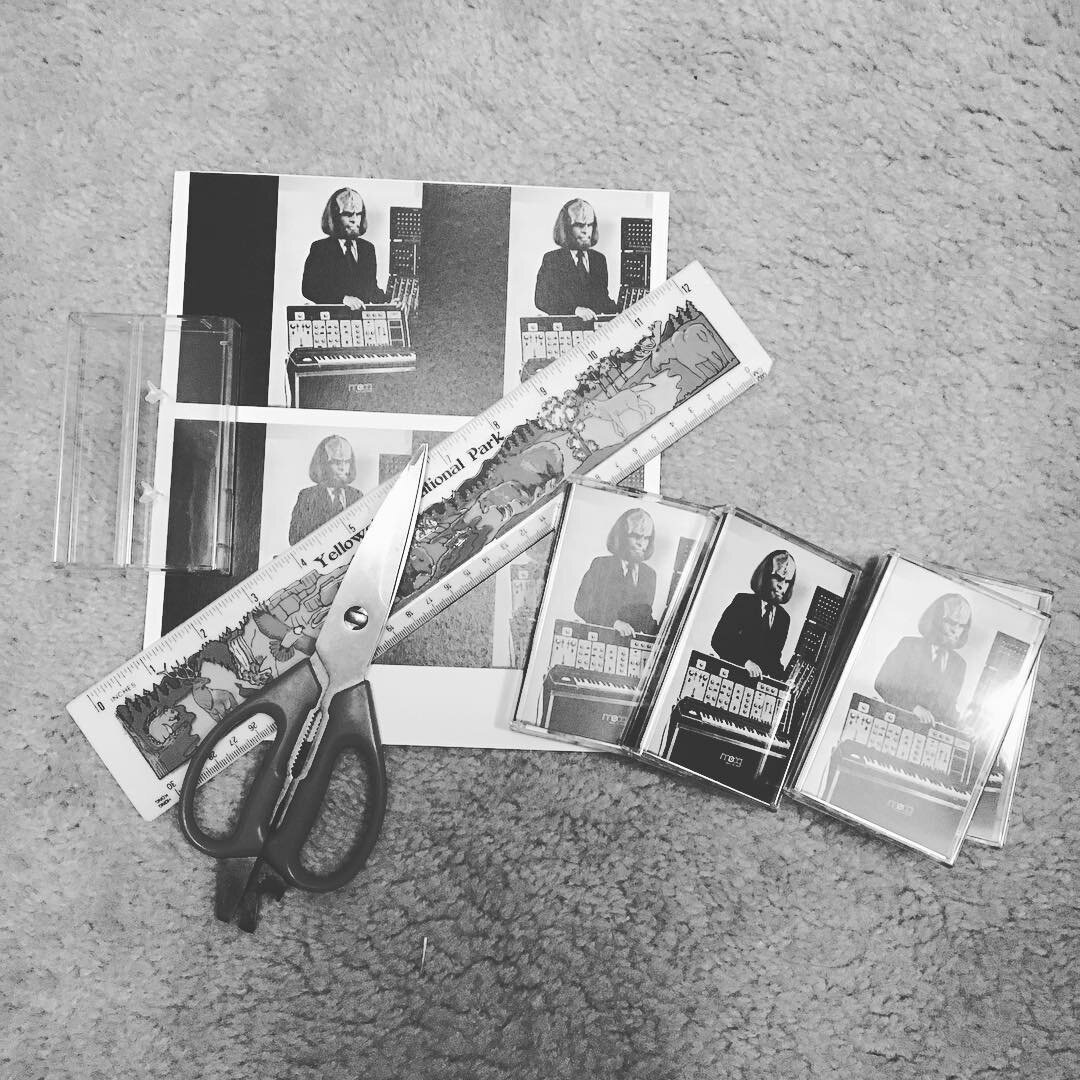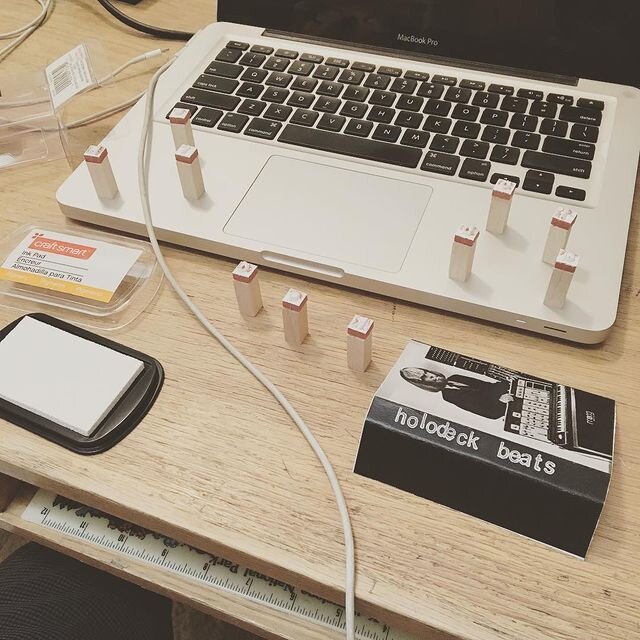Art of Necessity: Dubbing and Selling ‘Actus Reus’
What was once a Slim Whitman tape, is now a hardcore rap clinic. The magic of elbow grease and patience.
The Premise:
Ahead of the release of ‘Actus Reus’ I was a busy boy, recording hundreds of demo tapes and gearing up for my promotional road trip across the country. For the foreseeable future, I would be stopping at any and every record store along the way sharing promotional copies of my first release on Fatbeats. I met some cool people, some shitty people, and learned that some grassroots marketing tactics are still viable.
Why put in all this effort to begin with? As an artist, I treat my own work with respect, because it is important to me. The act of hand labeling hundreds of tapes is tedious and time consuming and those efforts are often lost on other people, but that is not the point. The point is to create something you love in the way you want. Love your work and it will show. Whether anyone listened to my tape or not, the J-Cards looked damn good, and I was proud of the packaging I designed for my work, which holds primacy above all else.
The Ethos:
I grew up on punk, metal, and hip hop. Key figures in these genres shaped the way I approach music creatively and professionally. Each of these musical movements, though stylistically different, are connected through their DIY ethics, their virility in early tape trading culture, and their dedication to controlling every aspect of their creative output. As a young fan, I went to great lengths to secure this music, and often times it was coming to me direct from the band, not through any corporate intermediary. Inspired by stories from Ian MacKaye, making ten thousand record sleeves by hand for his first release, I tried to adopt a similar approach with my music, and with ‘Actus Reus’.
Below is a gallery you can click through showing a few steps in the tape making process.
Toxic Chemicals and Sharp Objects:
I recorded around 200 demos on repurposed tapes with preexisting music on them. I printed, cut, and hand stamped my J-Card inserts and taped business cards on the other side. The purpose was to provide something tangible and hopefully unique to the record store clerk, owner, or buyer, so that they would remember me and possibly remember to order ‘Actus Reus’ from the distributor (Fatbeats) when it came out. The takeaway; most record store owners love Worf!
Recording over an old cassette tape is easier than it looks. Just follow these steps to get started:
Acquire tapes, any tape will do. For some reason Goodwills are brimming with old trucker country tapes. Blank tapes are expensive and harder to come by these days. You can probably get a box-load of dusty Moe Bandy tapes for free if you talk sweet enough.
Discard original J-Card insert. Take measurements as a guide for designing your own J-Cards.
Apply nail polish remover to a cotton ball or soft cloth and begin rubbing the ink off of the actual cassette. You don’t want your demo to say “Bandy the Rodeo Clown”
Fix the felt guide on the bottom of the tape with super glue. This keeps your music from getting too wobbly.
Get the tapes ready for recording. Most tapes have the tabs on top removed to keep consumers from recording over the music. You can get around this by taking a thin piece of card stock and taping it over the openings on the top of the tape. When you press the record button on the tape recorder, the card stock will play the role of the original tabs, allowing the tape to be locked in place for re-recording.
Using a reliable tape recorder, record the demo to the tape, making sure levels are correct. You don’t want too much breakup and you don’t want the music to be too quiet either. To make sure none of the original music peeks through or plays out at the end of your recording, record over the whole tape with nothing plugged in, effectively erasing the tape before recording your demo.
Cutout new J-Card inserts, and relabel blank tapes as needed.
Repeat this process 10,000 times.
I also had CDs and onesheets for record stores to have listening copies to play in store and share more readily with colleagues.
The Sound of Salesmen:
I was now armed to the teeth, with a box of cassette tapes, promo CDs, and a few test pressings of ‘Actus Reus’. It was coming out in October and I was hitting the road a few months beforehand to spread the word face to face with record store owners and record buyers. The cassette tapes acted as a unique collector’s piece for stores that were cool to me and essentially pledged their support. In short, if you were a dick, I didn’t give you a tape, I worked too damn hard on them. Every record store I visited got a promo CD and a onesheet with all relevant information regarding ‘Actus Reus’, including how to participate in a T-Shirt promotion.
Inundating record store employees with all this information, and showering them with these “gifts”, elicited a wide array of conditioned emotional responses, some good and some not so good. Fortunately, most stores were pleasantly surprised by my visit and were glad to talk about the release. Many pledged support and followed through, helping to get ‘Actus Reus’ on shelves around the country. The few assholes in the bunch I can hardly even remember…I’m looking at you Bookman’s Flagstaff.
Cutting out CD inserts. Avoid cramps by eating plenty of bananas.
The Approach:
Be friendly and direct: Beating around the bush is annoying to people who are working. Doing anything short of just buying something and leaving is generally frowned upon so waste as little of their time as possible, especially if the store is busy. If they want to talk more about the release, they will.
Read the Room: Are you the only customer in there or is it fucking record store day and you’re swimming through a sea of fedoras and satchels? Sometimes its good enough to ask for the “Buyer” and hand them the onesheet and promo copies and bounce.
Talk to the Right People: Most record stores have a dedicated “Buyer”, some larger record stores have buyers for certain genres. Opening up with “Can I speak with the Buyer?” usually yields results, because most record store employees are happy to pass your smelly ass off to another person. Using the right lingo separates you from the average guy who is hocking his mixtape. Sounding professional goes a long way.
Bring the Right Stuff: Bring a printed onesheet with the album artwork, tracklist, wholesale price, distro information, and any other worthwhile selling points. Nearly every Buyer I spoke with asked for one. Bringing a CD copy of your work allows them to check out the music and gives them something to play in store when your record comes out. “Listening Copies” are helpful in incentivizing a store to carry your music.
Take the Right Stuff: Make sure you get the email address of the buyer or owner before you leave, take any cards you can and keep that info in a spreadsheet for future use. Follow the store on social media. And, maybe, buy something from them if they were cool and gave you the time of day.
Acknowledgments:
It can be daunting to look at a list of 100s of record stores knowing you have to put yourself out there everyday to share your sounds with the old guard of musical tastemakers. Record stores hold a special place in my heart because I come from an era where music discovery was tactile and social. Going to the local record store to get recommendations, spending hours sorting through copies of my future favorite tunes, and taking chances on obscure or strange finds was what shaped my musical taste and fostered my drive to create.
There are a few Record Stores I would like to thank for being especially awesome to me on my journey:
SoundGarden (Syracuse, NY and Baltimore, MD)
Vinyl Junkies (San Diego, CA)
Bullmoose (Portland, ME)
Record Surplus (Los Angeles, CA)
Music Record Shop (St. Louis, MO)
Josey Records (OKC, Kansas City, and Dallas)
Grand Avenue Records (PHX, AZ)
These places made the trip worth it, and you might be able to find a copy of my record on their shelves today.






